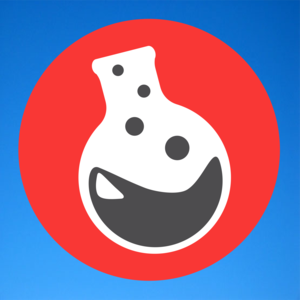12656290
AQA (9-1) Topic 8
Descripción
Test por https:// revisechemistry.uk, actualizado hace más de 1 año
Más
Menos

|
Creado por https:// revisechemistry.uk
hace casi 7 años
|
|
Resumen del Recurso
Pregunta 1
Pregunta
Artificial colours can be detected and identified using:
Respuesta
-
Filtration
-
Paper chromatography
-
Flame tests
-
Mass spectrometer
Pregunta 2
Pregunta
Paper chromatography works because some of the coloured substances are better at dissolving in the liquid than they are at bonding with the paper, so they travel further [blank_start]up[blank_end] the paper.
Respuesta
-
up
Pregunta 3
Pregunta
There are four gases you need to know how to test. Select the correct gas, and fill the blanks for the tests below.
[blank_start]Hydrogen[blank_end] can be tested by placing [blank_start]a light splint[blank_end] over the end of a test tube, and hearing a 'squeaky pop'.
[blank_start]Oxygen[blank_end] can be tested by placing a [blank_start]glowing splint[blank_end] over the end of a test tube, and seeing it relight.
[blank_start]Carbon dioxide[blank_end] can be tested by bubbling the gas through limewater, and seeing it turn cloudy.
[blank_start]Chlorine[blank_end] can be tested for by holding [blank_start]damp blue[blank_end] litmus paper over the end of a test tube, and seeing it turn [blank_start]red, then white[blank_end].
Respuesta
-
Hydrogen
-
Oxygen
-
Carbon dioxide
-
Chlorine
-
a lighted splint
-
a glowing splint
-
Oxygen
-
Hydrogen
-
Carbon dioxide
-
Chlorine
-
glowing splint
-
lighted splint
-
Carbon dioxide
-
Oxygen
-
Hydrogen
-
Chlorine
-
Chlorine
-
Oxygen
-
Hydrogen
-
Carbon dioxide
-
damp blue
-
dry blue
-
damp red
-
dry red
-
red, then white
-
blue, then white
Pregunta 4
Pregunta
Paper chromatography consists of two stages:
the [blank_start]stationary[blank_end] phase (a.k.a. the phase that doesn't move - this is the [blank_start]paper[blank_end])
the [blank_start]mobile[blank_end] phase (a.k.a. the phase that moves - this is the [blank_start]solvent[blank_end])
Respuesta
-
stationary
-
paper
-
solvent
-
mobile
Pregunta 5
Pregunta
A formulation is a [blank_start]mixture[blank_end] that has been designed as a useful product.
Respuesta
-
mixture
-
compound
-
element
Pregunta 6
Pregunta
Pure substances will melt and boil [blank_start]at specific[blank_end] temperatures, so we can use the temperature that a substance melts/boils at to tell how [blank_start]pure[blank_end] it is. Impure substances will melt [blank_start]over a range of[blank_end] temperatures. If a substance is [blank_start]impure[blank_end] it will generally also have a [blank_start]lower[blank_end] melting point and a [blank_start]higher[blank_end] boiling point.
Respuesta
-
at specific
-
over a range of
-
pure
-
impure
-
lower
-
higher
Pregunta 7
Pregunta
A pure substance is either a single element, or compound, that is not mixed with any other substance.
Respuesta
- True
- False
Pregunta 8
Pregunta
If the red spot moved 7 cm, and the solvent moved 9 cm, then what is the Rf value of the red spot? (give answer to 2 d.p.) [blank_start]0.78[blank_end]
Image:
Rfcalc (image/gif)
Respuesta
-
0.78
¿Quieres crear tus propios Tests gratis con GoConqr? Más información.
